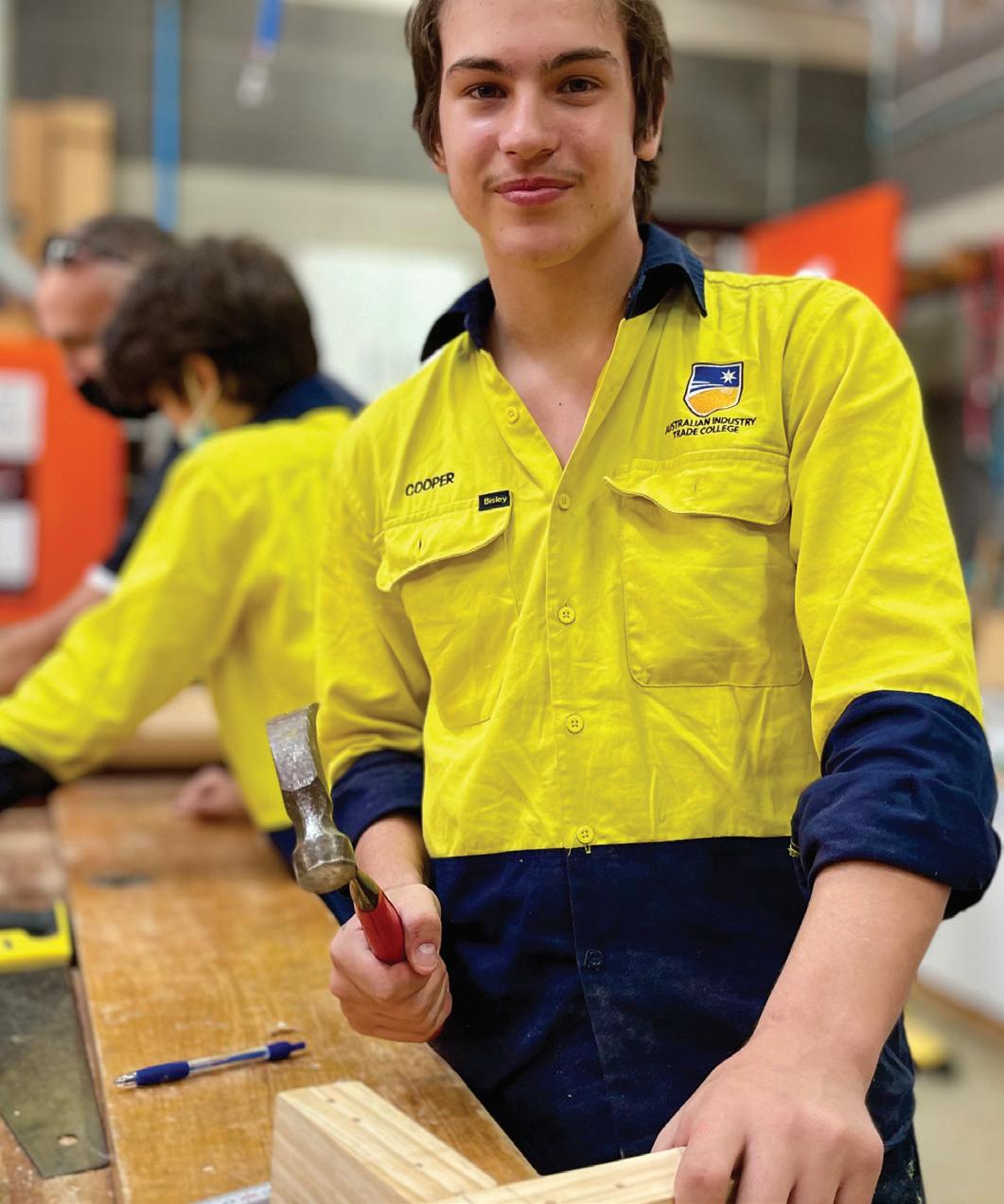
4 minute read
TAFE
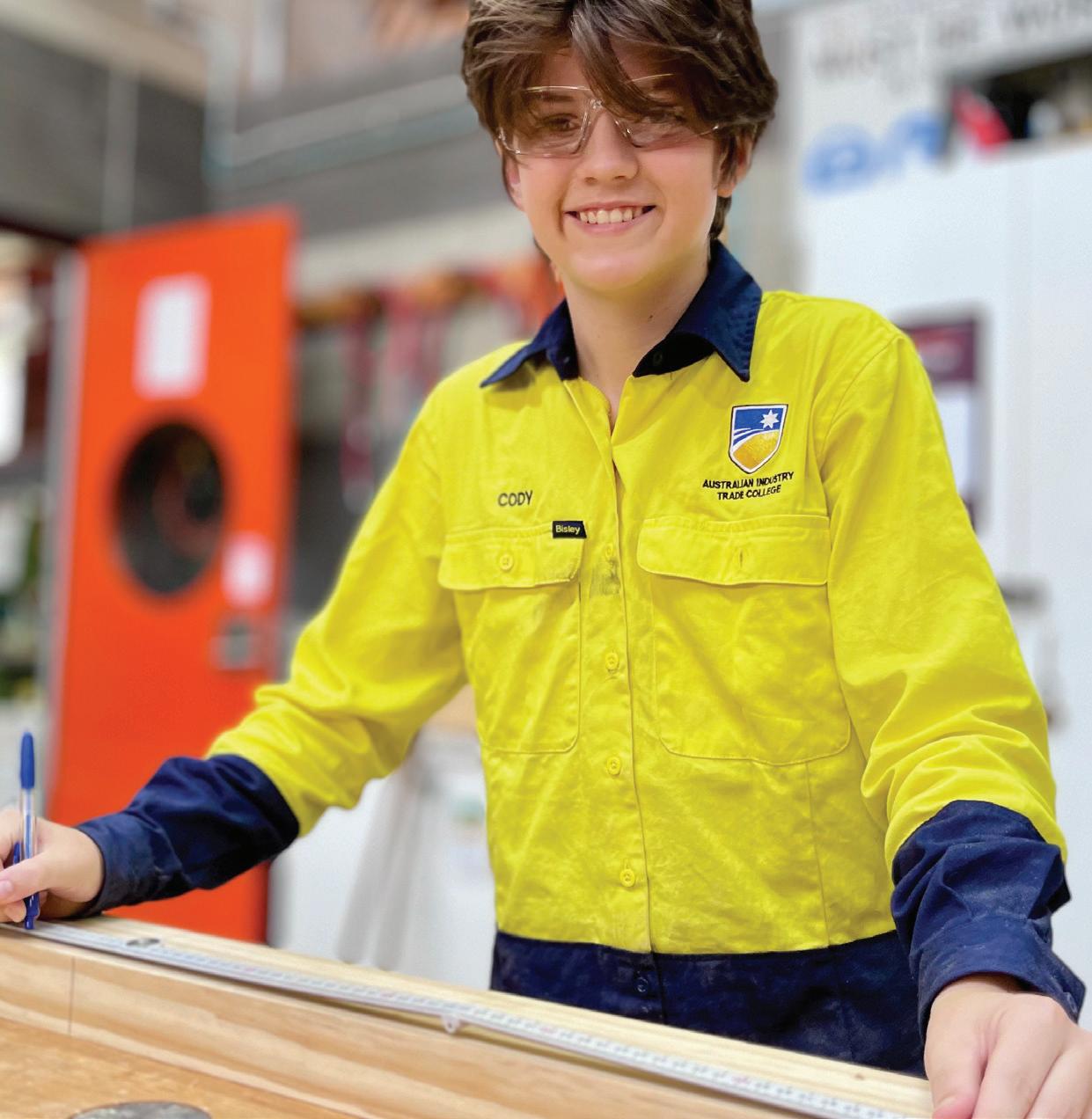
DELIBERATELY DIFFERENT.
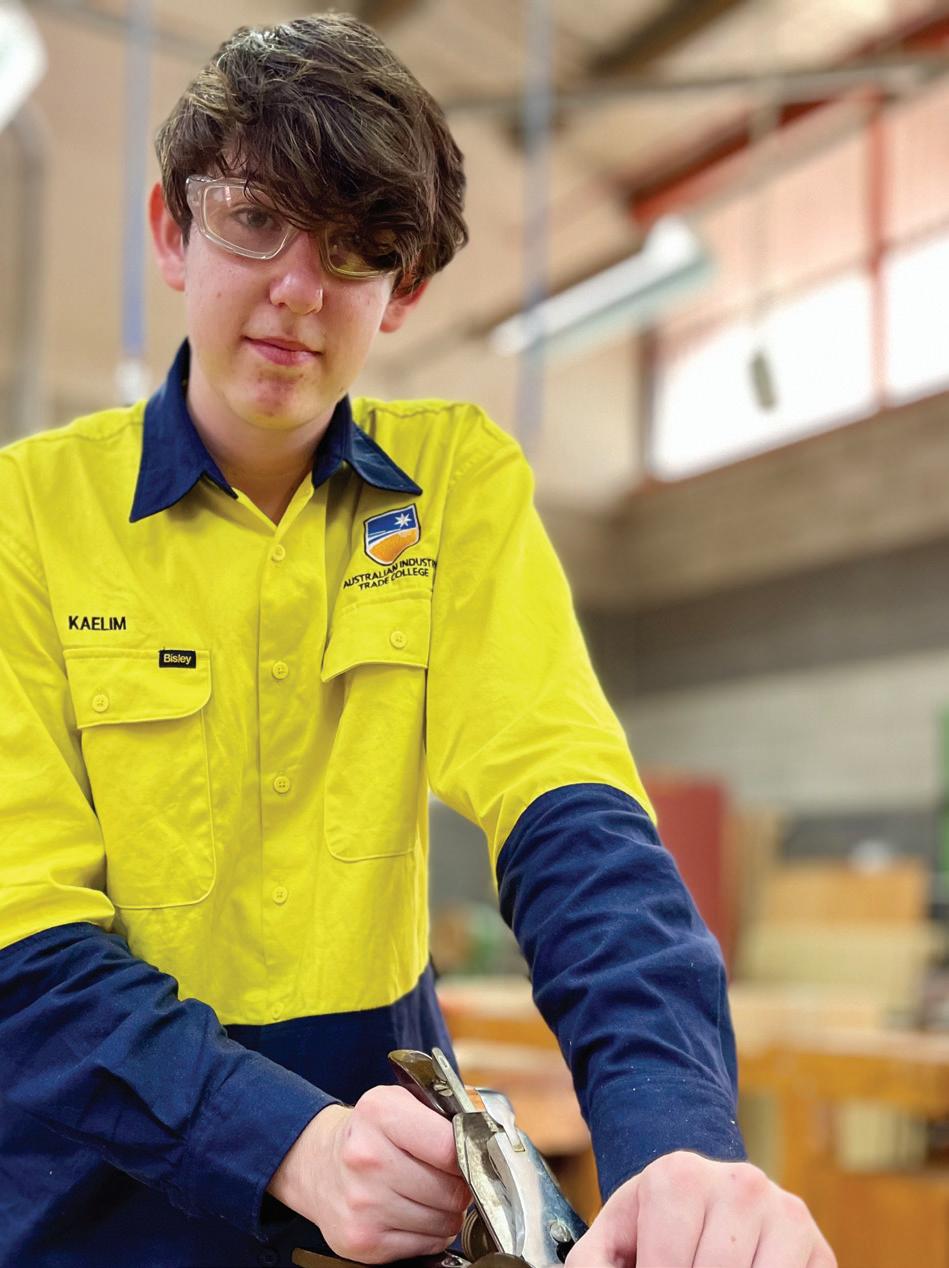
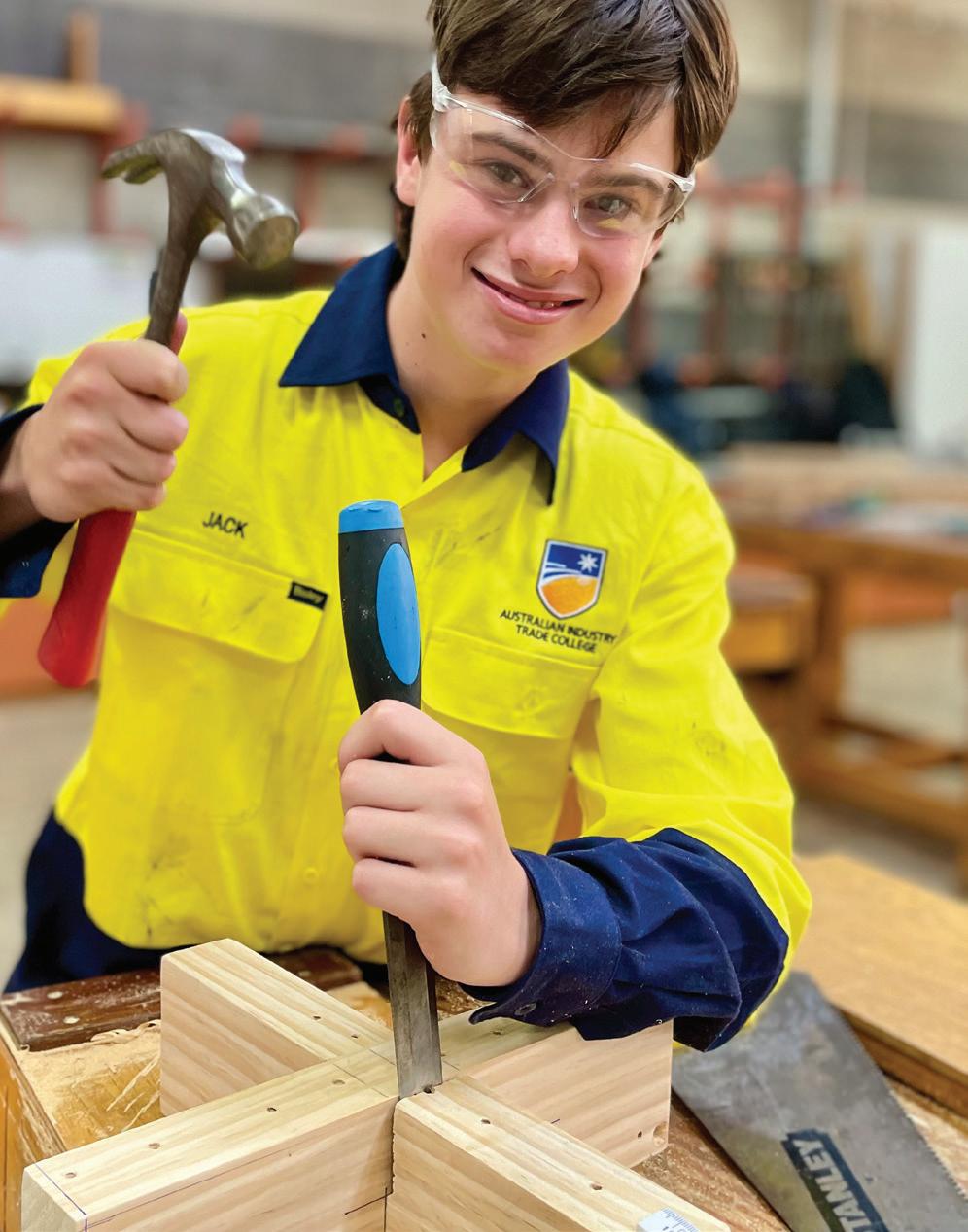
47
blueprint australian industry trade college
THE PARTNERSHIP BETWEEN TAFE AND THE AITC HELPS YOUNG PEOPLE PREPARE FOR THE WORLD OF WORK
Year 10 rookies complete TAFE Trade Taster Program
Year 11 rookies complete TAFE Pre-Vocational Course Begin industry career confidently Add value to their business of choice Be more prepared than the typical work experience person
N 05 JULY 2022
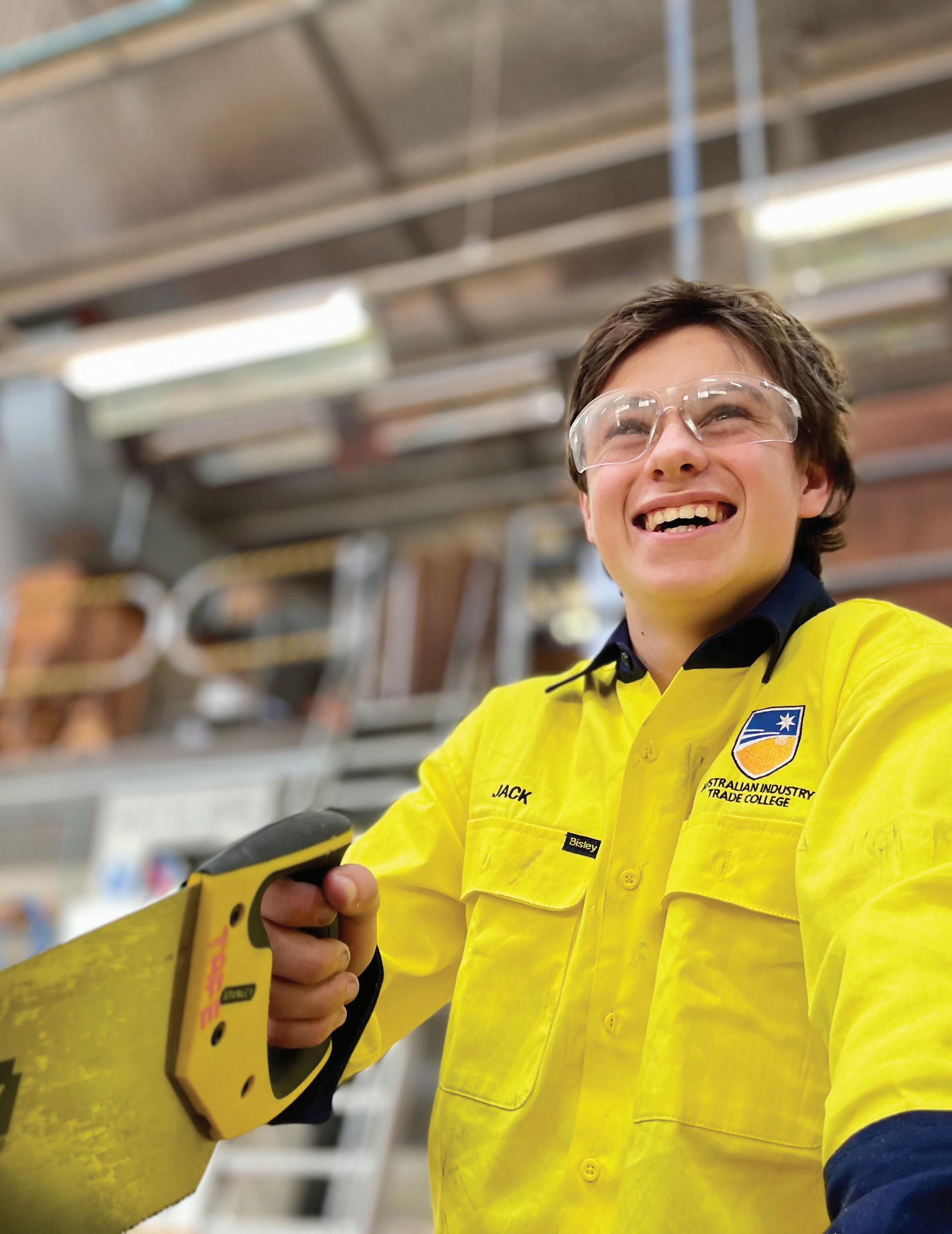
The Australian Industry Trade College (AITC) and TAFE have an integral relationship which plays a critical role in supporting the journey of our young people. For some, the TAFE program is their first foray into industry. The program provides a great opportunity for young people to participate in an adult learning environment prior to an actual industry placement with a host employer. All Year 10 rookies complete the TAFE Trade Taster program as it supports the AITC’s commitment to safety and training regardless of what industry a young person will pursue.
Young people across each campus visit TAFE Queensland in their various regions for the TAFE Trade Taster and pre-vocational training courses. The program is split over Term 1 and Term 2. The Trade Taster program includes traditional trades such as construction, plumbing, electrical, automotive and engineering. Some campuses will have the opportunity to sample other skills such as hospitality, hairdressing and in the future the possibility of health and associated services. It’s important for young people to also obtain their White Card which is an essential licence required to enter and work on construction sites in Australia.
Students attend TAFE for four weeks in total doing Trade Tasters, while pre-vocational courses typically last for 35 days or seven weeks in total. The electrical trade provides further training due to the extensive teaching required, going for 40 days or eight weeks in total.
While visiting TAFE Toowoomba in February, Year 10 rookies were immersed in tasting their trades. “It’s great to see smiling faces and everyone is participating,” says Dave Breeze, AITC Regional Industry Officer (Western). “We’ve challenged our young people to keep an open mind, enjoy the sampling and give things a go. A key part of their future success is understanding what they don’t want to do as much as what they do enjoy. The program offers the opportunity to acquire and develop transferable skills they can take into any other trade if they wish.”
The strategic partnership with TAFE allows the AITC to send students in extended blocks to participate in a dedicated class. We also support our young people who are pursuing other trades where training is one day per week. These young people will participate in the TAFE VET-in-Schools programs along with other external students. Examples of this include hospitality and hair dressing. “The great thing about having our students complete blocks of up to four weeks at a time is that all pre-vocational training is finished in Semester 1 of Year 11. This allows our young people in Semester 2 to confidently pursue work experience and go out into industry for up to seven weeks at a time. “The training, along with a good keen attitude and drive, allows young people to begin their industry career confidently. The skills they gain will add value to their business of choice. Their extensive training creates an opportunity that possibly wasn’t there prior to commencing work experience.” explains Dave.
For example, Year 11 rookies will participate in a pre-vocational course in construction at TAFE— a very popular course on all AITC campuses. “Young people have the opportunity to delve further into construction trades,” explains Dave. “They learn building skills, how to do wall-lining with plasterboard and then a bit of plastering as well.” They receive further training, further knowledge and further skills which will help them obtain a work experience placement. This could then lead to a school-based apprenticeship.
“The comments we get from our employers is that our AITC young people are more prepared than the typical work experience young person — because of the training they’ve had.”
Units of competency are completed which include theory in the classroom, understanding the task at hand, then the opportunity to get into the workshop and put it all into practice. Each lesson will always start with a safety talk.
“This is a critical part of the journey for a young person. It puts them ahead of other young people. That’s the feedback we are getting from industry. It puts them in a position where industry might start considering the young person for a school-based apprenticeship sooner.”










